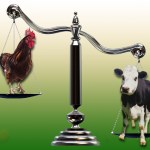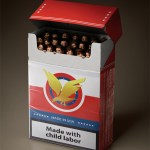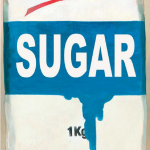agriculture
If the US Environmental Protection Agency (EPA) and the Department of Agriculture (USDA) give their approval to a new herbicide called Enlist Duo and to corn and soybean seeds genetically engineered (GE) to resist that chemical, the United States could see a significant increase in what is already one of the country’s most widely used herbicides. Yet while the EPA seems poised to approve Enlist Duo and USDA, the GE seeds, about 50 members of Congress have written to EPA Administrator Gina McCarthy and Secretary of Agriculture Tom Vilsack expressing their “grave concerns” about “the…
Today, the Centers for Disease Control and Prevention released new data on heat deaths among U.S. workers, underscoring the often-tragic consequences that result when employers fail to take relatively simple and low-cost preventive actions.
Published in today’s issue of CDC’s Morbidity and Mortality Weekly Report (MMWR), researchers reviewed two years worth of OSHA enforcement cases that were investigated under its general charge to uphold safe and healthy workplaces. (OSHA investigates workplace heat illness and death via the “general duty clause” of the Occupational Safety and Health Act of…
For 17 years, Salvadora Roman deboned chickens on the processing line at Wayne Farms in Decatur, Alabama. In particular, she deboned the left side of the chicken — a task she was expected to perform on three chickens each minute during her eight-hour shift. Because of the repetitive movement and speed of the processing line, Roman developed a chronic and painful hand injury that affects her ability to do even the most basic household chores. About three years ago, she was fired from the plant for taking time off work to visit a doctor for the injury she sustained on the line.
“My hand started…
On Significant Figures, Peter Gleick examines the rather relaxed attitudes of some Californians to an extreme drought fostered by three years of dry weather. Gleick writes “reservoirs are at record low levels. Deliveries of surface water to some farmers are lower than at any time in recent history. Streams are drying up and fisheries are being devastated.” Yet he and millions of other residents have been able to run water from their taps freely. Agriculture might only suffer losses of 4% (about .0008% of the state’s total economy). And an expectation of El Niño rains obscures the…
Do you know the real price of a piece of beef? Here is a nice, round number to chew on: The environmental cost of beef is ten times that of dairy, eggs or poultry. This means that if you chose to eat a steak over an omelet, (assuming they have equal amounts of protein) the ecological footprint of your meal will go from a size 5 to a size 50.
Drs. Ron Milo, Gidon Eshel, research students Alon Shepon and Tamar Makov realized that even though we might try to make the right choices in our diets, we’re likely to base them on the pronouncements of experts. The problem is that neither we nor they…
In the past few weeks, I have had been asked the same question by reporters, friends, strangers, and even a colleague who posts regularly on this very ScienceBlogs site (the prolific and thoughtful Greg Laden): why, if the California drought is so bad, has the response been so tepid?
There is no single answer to this question (and of course, it presumes (1) that the drought is bad; and (2) the response has been tepid). In many ways, the response is as complicated as California’s water system itself, with widely and wildly diverse sources of water, uses of water, prices and water rights,…
“I got a headache before. It was horrible. It felt like there was something in my head trying to eat it.”
Those are the words of a 12 year-old boy who works in the tobacco fields of eastern North Carolina. His words are just one of many from other young seasonal workers who work on U.S. tobacco farms in KY, NC, TN, and VA. Their experiences are catalogued in Human Rights Watch’s (HRW) "Tobacco’s Hidden Children: Hazardous Child Labor in US Tobacco Farming.” The report was released last week.
Credit: Human Rights Watch
The 139-page report was also the subject of editorials…
I'm thinking it will be the food you eat that gets you. Here's why.
Humans eat a wide variety of foods; as a species, the diversity of species we eat is greater than any other animal by a very large margin, with the only quirky exception being the animals that we take along with us, the commensals such as rats and cockroaches. Most primates eat a high diversity of foods, but about two million years ago or a bit less, according to the “Cooking Hypothesis” (which a lot of people think is correct) we took an already diverse primate diet and added to it anything we might encounter in the…
The Coalition of Immokalee Workers’ Fair Food Program has garnered praise from the White House to the United Nations for its innovative strategies to improve working conditions among farmworkers in Florida. The program, which began in 2010, works by getting big buyers to agree to only purchase tomatoes from farms that adhere to worker protection rules and ensure that workers are educated on their rights and responsibilities. Businesses that have signed on include Taco Bell, Chipotle and, recently, Wal-Mart, which according to a New York Times article chronicling progress on Florida farms,…
A few of the recent pieces I've liked:
Jennifer Brown and Christopher N. Osher in the Denver Post: Prescription Kids (a six-part investigative series on the extensive prescribing of psychotropic drugs to Colorado foster children; via Reporting on Health)
Lydia DePillis at Washington Post's Wonkblog: The U.S. still spends way more on teen pregnancy than family planning
David Moberg at In These Times: Meet the 'Missing' Workers ("More than 5 million Americans have given up hope of a job. Who are they?")
William Laurance at Yale Environment 360: Will Increased Food Production Devour Tropical…
When President Obama signed the Food Safety Modernization Act (FSMA) into law in 2011, it was described as the most sweeping reform of the nation’s food safety laws in nearly a century. Public health advocates hailed the law for shifting regulatory authority from reaction to prevention. What received less attention was a first-of-its-kind provision that protects workers who expose food safety lawbreakers.
The law’s whistleblower provision, also known as Section 402, amends the federal Food, Drug and Cosmetic Act to provide “protection to employees against retaliation by an entity engaged in…
“For us it’s personal,” said Jeannie Economos, Farmworker Association of Florida Pesticide Safety and Environmental Health Project Coordinator. “It’s a daily issue for us. Every day with a weaker protection standard is another day a worker is exposed to pesticides,” she said.
On February 20th , the US Environmental Protection Agency (EPA) announced proposed revisions to its Worker Protection Standard for agricultural pesticides, the first since the existing standard was established in 1992 – and the second proposed update to the standard since its introduction in 1974. EPA has called the…
Figure 1: Monthly average precipitation showing the seasonality of precipitation in different parts of California, from the iconic California Water Atlas.
California has a “Mediterranean” climate, which means that each year it has a concentrated rainy season, followed by a long temperate and dry period. California’s rainy season typically runs from early October to late March, with very little precipitation outside of these months. (Figure 1 shows the average monthly rainfall for California.) It is now early 2014 and the rains have not come, for the third year in a row. While the …
A few of the recent pieces I've liked:
Ken Ward Jr. in the Charleston (WV) Gazette: Why wasn't there a plan? Key players knew of potential for Elk River spill and State ignored plan for tougher chemical oversight (also check out opinions on the West Virginia chemical release from Deborah Blum at Elemental and Tom O'Connor at National COSH)
Jia Tolentino interviews MacArthur "Genius" Grant-winning statistician Susan Murphy at The Hairpin. ("Susan Murphy is a statistician developing new methodologies to evaluate treatments for chronic and relapsing disorders like depression and substance abuse…
On average, eating healthy costs about $1.50 more per day than the least healthy diets, a new study finds. The extra cost seems insignificant at first — a small cup of coffee often costs more — but it all adds up to be a considerable barrier for many low-income families.
Researchers with the Harvard School of Public Health set out to find the evidence behind the conventional wisdom that healthier foods cost more, conducting the most comprehensive meta-analysis to date of price differences between healthy and unhealthy foods. In examining data from 10 high-income nations, researchers found…
In May 2010, an explosion at the Black Mag gunpowder-substitute plant in Colebrook, New Hampshire killed employees Jesse Kennett and Don Kendall. The Occupational Safety and Health Administration (OSHA) investigated and issued 54 citations with penalties totaling $1.2 million. David Michaels, Assistant Secretary of Labor for Occupational Health and Safety, said at the time, "Even after a prior incident in which a worker was seriously injured, and multiple warnings from its business partners and a former employee, this employer still decided against implementing safety measures." Safety…
Somebody tipped over a bag full of a white powdery substance. Most of what fell out splayed across the dirty wooden table, but about a cup poured onto the dirt floor of the open-air Baraza at our research site in a remote part of the Congo’s Ituri Forest. Embarrassed about tipping onto the ground more of this valuable substance than most people living within 50 kilometers would ever see in one day, the tipper started to push loose dirt onto the powder to cover it up. But the spill had been noticed by two children lounging nearby; in what seemed like a fraction of a second, the boys were face…
As Americans prepare for the Thanksgiving holiday and the White House gets ready for President Obama to pardon the National Thanksgiving Turkey in a Rose Garden ceremony on Wednesday November 27 that will “reflect upon the time-honored traditions of Thanksgiving,” let us take a moment to reflect upon the welfare of the men and women who process the millions of turkeys on their way to Thanksgiving dinners.
First, according to the US Department of Labor’s Bureau of Labor Statistics (BLS), about 220,000 people currently work in the poultry processing industry in the US, at an annual median wage…
As Liz Borkowski noted yesterday, we are following up on a tradition that we started last year to mark Labor Day. We released our second annual review of U.S. occupational health and safety for Labor Day 2013.
Liz explained in her post our objectives in preparing the report. She also highlighted its first section which profiles some of the best research from the year published in both peer-reviewed journals and by non-profit organizations. Here’s a peek at section two of the report on activities at the federal level:
Sequestration and other budget cuts have affected our…
Water may be the most abundant molecule on the surface of the Earth, but more than 99% of it is frozen, underground, or too salty to drink. Only .007% of the planet's water runs in rivers and lakes, yet this precious amount sustains massive populations worldwide. Agricultural societies have long gone to war over water, and as the Earth's population balloons toward 10 billion, global warming destabilizes weather patterns, and pollution sullies what little is left to count on, the conflicts will only get worse. On Significant Figures, Peter Gleick traces Syria's civil war in…





